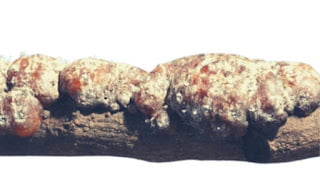Human Health and Disease: Human health is one of the most important aspects of our lives, but it is often taken for granted until something goes wrong. From the moment we wake up, we rely on our bodies to perform countless functions, allowing us to live, work, and enjoy life. But what happens when disease strikes? here we will understanding human health and disease
What is Health?
Health is more than just the absence of disease. It is a state of complete physical, mental, and social well-being. This means that a person is not only free from illness but also enjoys a positive state of mind and is able to engage fully with their community. Health is a balance between the body, mind, and environment.
When all these aspects are functioning optimally, an individual is said to be in good health. However, imbalances in any of these areas can lead to poor health or disease. That’s why achieving good health requires attention to diet, exercise, mental health, and social interactions.
What is Disease?
Disease is defined as a condition that affects the body and disrupts its normal functioning. Diseases can be caused by various factors, including pathogens (bacteria, viruses, fungi, etc.), genetic predisposition, environmental influences, and lifestyle choices.
Human Health and Disease
Types of Diseases
The diseases may be broadly classified into two types: Congenital and acquired.
I. Congenital Diseases: These are anatomical or physiological abnormalities present from birth. They may be caused by (i) a single gene mutation (alkaptonuria, phenylketonuria, albinism, sickle-cell anaemia, haemophilia, colour blindness); (ii) chromosomal aberrations (Down’s syndrome, Klinefelter’s syndrome, Turner’s syndrome); or (iii) environmental factors (cleft palate, harelip). Unlike the gene-and chromosome-induced congenital defects, environmentally caused abnormalities are not transmitted to the children. ‘Human Health and Disease’
II. Acquired Diseases: These diseases develop after birth. They are further of two types: communicable and non-communicable.
- Communicable (Infectious) Diseases: These diseases are caused by viruses, rickettsias, bacteria, fungi, protozoans and worms. They can spread through various means, such as:
- Airborne transmission (coughing or sneezing)
- Direct contact (touching infected surfaces)
- Vector-borne transmission (e.g., through mosquitoes, as seen in malaria)
- Contaminated food or water
| Disease | Pathogen | Transmission | Symptoms |
|---|
| Typhoid | Salmonella typhi | Contaminated food/water | High fever, weakness |
| Pneumonia | Streptococcus pneumoniae | Droplets (air) | Cough, chest pain |
| Malaria | Plasmodium (protozoa) | Female Anopheles mosquito | Fever with chills |
| Amoebiasis | Entamoeba histolytica | Contaminated food/water | Diarrhea, cramps |
| Ascariasis | Ascaris lumbricoides (worm) | Soil, poor hygiene | Abdominal pain, vomiting |
Malaria:
Malaria has been for thousands of years a very serious disease of the tropical and temperate regions. It was almost eliminated a few years back with the efforts of World Health Organization (WHO) and our National Malaria Eradication Programme (NMEP), but unfortunately, it has appeared again.
(a) Symptoms: The attack of malaria is preceded by yawning, tiredness, headache and muscular pain. During the fever, the patient feels chilly and shivers, and has acute headache, nausea and high temperature. After a few hours, the body perspires freely and the temperature becomes normal. The cycle is repeated if no medicine is taken. Blood smear made during fever shows the malarial parasites. No parasites are seen at other times. In chronic cases, there is general weakness and anaemia (paleness) due to large-scale destruction of red blood corpuscles. This is also accompanied by enlargement of spleen and liver. ‘Human Health and Disease’
(b) Cause: Malaria is caused by the toxins produced in the human body by the malarial parasites, Plasmodium.
2. Noncommunicable (Noninfectious) Diseases: These diseases remain confined to the person who develops them and do not spread to others. The non-communicable diseases are of four kinds –
(i) Organic or Degenerative Diseases: These diseases are due to malfunctioning of some of the important organs, e.g, heart diseases, epilepsy. Heart diseases result from the abnormal working of some part of this vital organ. Epilepsy may result from abnormal pressure on regions of the brain.
(ii) Deficiency Diseases : These diseases are produced by deficiency of nutrients, minerals, vitamins, and hormones, e.g., kwashiorkor, beriberi, goitre, diabetes are just a few from a long list.
(iii) Allergies: These diseases are caused when the body, which has become hypersensitive to certain foreign substance, comes in contact with that substance. Hay fever is an allergic disease.
(iv) Cancer: This is caused by a uncontrolled growth of certain tissues in the body.
The Immune System
(1) Immunity – The ability of the body to protect against all types of foreign bodies like bacteria, virus, toxic substances etc. which enter the body. ‘Human Health and Disease’
(2) The science dealing with the various phenomena of immunity, induced sensitivity and allergy is called immunology.
(3) Immune Response – Third line of defence. Involve production of antibodies and generation of specialized lymphocytes against specific antigens.
(4) Antigens – Substances which stimulate the production of antibodies, when introduced into the body.
(5) Antibodies – Immunoglobulins (Igs) which are produced in the body in response to the antigen or foreign bodies. ‘Human Health and Disease’
(6) All antibodies are immunoglobulins but all immunoglobulins are not antibodies.
(7) There are two major types of immunity: Innate or Natural or Non-specific immunity and Acquired or Adaptive or Specific Immunity.
Conclusion
Human health is a complex interplay of physical, mental, and environmental factors. Understanding the types of diseases, their causes, and how to prevent and treat them is key to leading a healthy life. With advancements in medicine, vaccines, and a focus on healthy living, we can protect ourselves from a variety of diseases and live longer, healthier lives.
Read more: World Bee Day Facts and awareness
FAQs
- What are the main causes of infectious diseases? Infectious diseases are primarily caused by pathogens like bacteria, viruses, fungi, and parasites. ‘Human Health and Disease’
- How can lifestyle diseases be prevented? Maintaining a balanced diet, exercising regularly, avoiding smoking, and reducing stress can prevent lifestyle diseases.
- What is the role of the immune system in preventing diseases? The immune system helps fight off pathogens and prevent infections by producing antibodies and attacking harmful invaders.
- What are some common vaccines that prevent serious diseases? Vaccines like BCG (for tuberculosis), Polio, Hepatitis B, and MMR (measles, mumps, rubella) are essential for preventing serious infectious diseases. ‘Human Health and Disease’
- How does pollution affect human health? Pollution, especially air and water pollution, can cause respiratory issues, gastrointestinal diseases, and even cancer.



